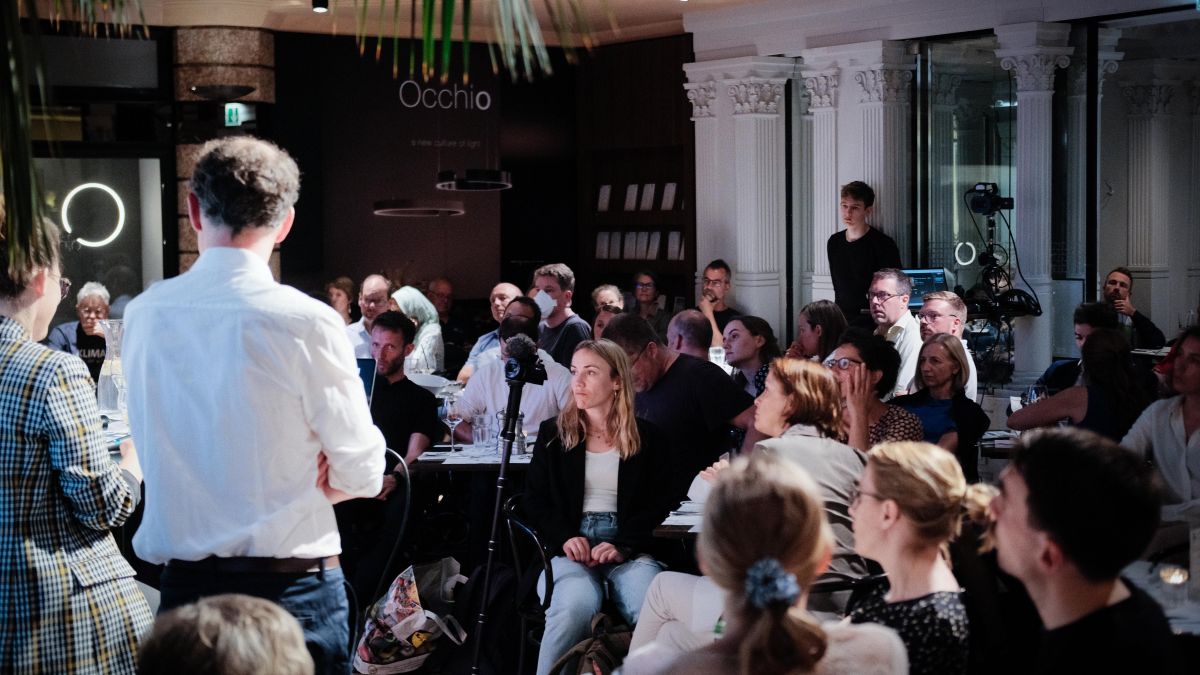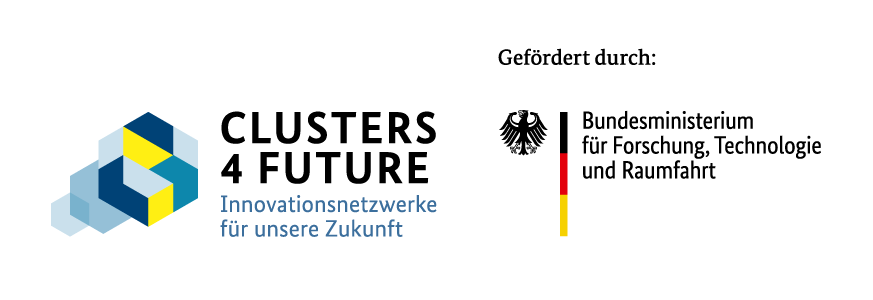„Do you want to drive or do you have to drive?" - Katja Diehl opened the evening of the second SpeakerSeries "Future of Mobility" with this exciting question on May 23, 2022. It turns out that answering this question is not that easy. The fact is: many people don't have the option of being mobile without a car and this is exactly what Katja Diehl wants to encourage.
"What's it like here in Munich, we've heard what would be nice, now let's hear what's nice here" - With this sentence, the second mayor Katrin Habenschaden introduced her vision for mobility in Munich. The aspect of where Munich currently stands in terms of mobility was not neglected. There is still a lot to do for the future, but the first step has been taken. Although the city's hands are tied when it comes to many decisions, such as parking fees, the audience also commented during the discussion that the current pace of the mobility transition is too slow.

The second round of the SpeakerSeries also focused on the The future of mobility took center stage. After a short reading from their book Autokorrektur, Katja Diehl and Katrin Habenschaden addressed the question of how we can all achieve fair and equitable mobility that focuses on people rather than vehicles. Together with 200 guests, they then discussed what the city of tomorrow will look like
For all those who unfortunately could not be there yesterday, here is the Link to the recording!
About our speakers:
"The future of mobility" is a series of lectures by MCube - Munich Cluster for the future of Mobility in Metropolitan Regions Technical University of Munich openLAB Urban Mobility and in cooperation with the Deutsches Museum - Verkehrszentrum.
How can mobility data and simulations make cities more liveable - and make change visible and tangible?
The MCube Consulting study shows how the Olympic Games could have a sustainable impact on Munich in terms of sport, society and the environment - something that has already been picked up on by many media outlets.
Munich is considering an Olympic bid - our study shows what opportunities and challenges the Games could bring for the economy, environment and society.
How do we want to move tomorrow? This question was the focus of the Citizens Lab at Marienplatz for six days.
The visual utopian Jan Kamensky presented his latest vision in cooperation with the Munich S-Bahn.
Carolin Zimmer from the Chair of Settlement Structure and Transport Planning and Sebastian Preiß from the Hans Sauer Foundation explain in an interview what the project has achieved and what makes it special.
Major award for a strong team: MCube Consulting receives the Innovation Award of the City of Munich - for a solution that reduces administrative workload, improves security and shows how research enables real change.
If Munich bids for the Olympics again, it will not do so arbitrarily - but with vision, attitude and a clear plan.
MCube had its own stand at the trade fair and brought together over 100 mobility pioneers at the "Bridging City Innovation Ecosystems" event above the rooftops of Barcelona.
What does the bus of tomorrow need to look like to convince as many people as possible to change buses voluntarily?
No results available

What is MOSAIQ?
Imagine something: There is more space for people. The streets have more trees and plants. Everyone can get around better. That's how your Schwabing-West district could be in the future. How would you like your district to be? We want to talk to you about it!
The project is called MOSAIQ. MOSAIQ is a research∙project. MOSAIQ means: Mobility and urban climate in the future city∙part. The Technical University of Munich is leading the project.
What is MOSAIQ about?
MOSAIQ wants to make the streets in the city∙part more beautiful. People should feel comfortable there. There should be more space. For meetings and plants, for example. You can help decide what is tried out in the Stadt∙teil. The ideas come from you. Some ideas will be tried out on the streets for a certain period of time.
The aim of MOSAIQ is to make urban districts good places to live.
At the same time, the climate in the city should improve. And people should be able to move around the city easily.
What is happening in the district?